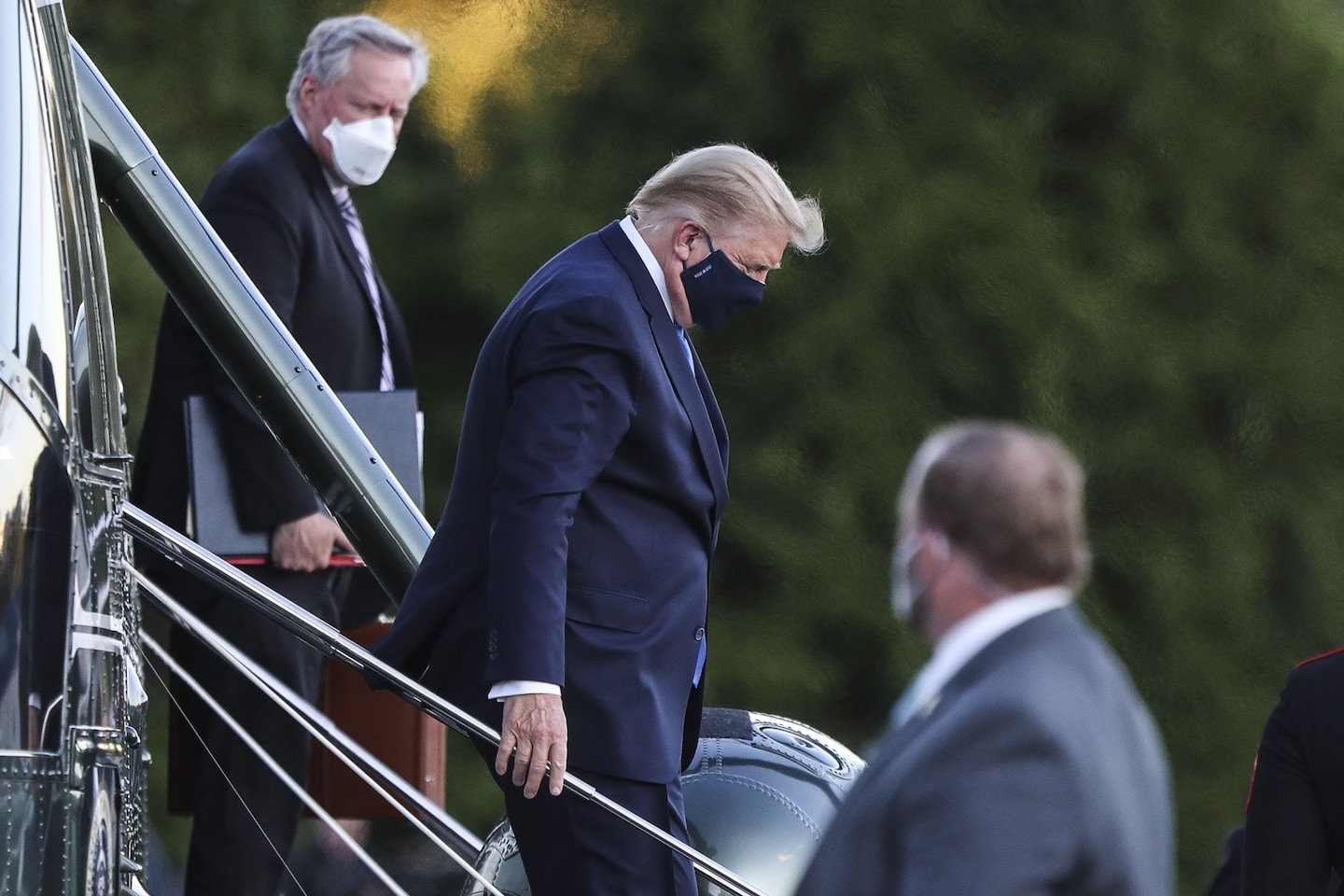Trump says he is doing well, after chief of staff says next 48 hours ‘critical’

Leading health experts criticized the Saturday morning news conference on President Trump’s condition at Walter Reed National Military Medical Center as “evasive” and confusing, and called on the White House to clear up conflicting accounts of the president’s infection timeline and treatment.
“Loads more questions than answers quite frankly,” tweeted Craig Spencer, a physician and epidemiologist at Columbia University Medical Center.
“We need clear and consistent communication from the White House,” echoed Ashish Jha, dean of the Brown University School of Public Health.
Speaking to reporters, Sean Conley, the president’s physician, said Trump was “just 72 hours into the diagnosis now,” which would mean he was diagnosed Wednesday morning, more than a day before Trump first disclosed his positive test. Conley also skirted questions about whether Trump had received supplemental oxygen and declined to say what lung scans had shown.
Confusion grew later in the day when the White House press secretary released a memo attributed to Conley that said the doctor “incorrectly used the term ’72 hours’ instead of ‘day three.’ ” Trump “was first diagnosed with COVID-19 on the evening of Thursday, October 1st,” read the memo, which incorrectly described the type of treatment the president received.
Eric Topol, a health professor and director of the Scripps Research Translational Institute, called the news conference “very disappointing” and “evasive.”
“The disclosure of the 72 hours from diagnosis leaves us with a significant time of lacking self-quarantine but instead travelling to Minnesota and New Jersey, along with many other gatherings, close contacts, that may well have further spread infections,” Topol said in an email.
Saad B. Omer, director of the Yale Institute for Global Health, suggested the medical team’s responses were unbecoming of the profession.
“Reminder: white house physicians are public servants. It is not their job to be politically evasive,” he wrote. “Ducking important questions (e.g. supplemental Oxygen, last -ve test, location of infection) like a politician is inappropriate.”
There was some good news: Experts said they were relieved to hear physicians report that Trump’s fever had gone away.
But Conley’s obfuscations were concerning, they said.
Bob Wachter, chair of the University of California at San Francisco’s Department of Medicine, wrote: “Evasive answers won’t engender trust re: credible info going forward.”
Correction: An earlier version of this post incorrectly identified Jha as director of the Harvard Global Health Institute. He has left his job at Harvard.






